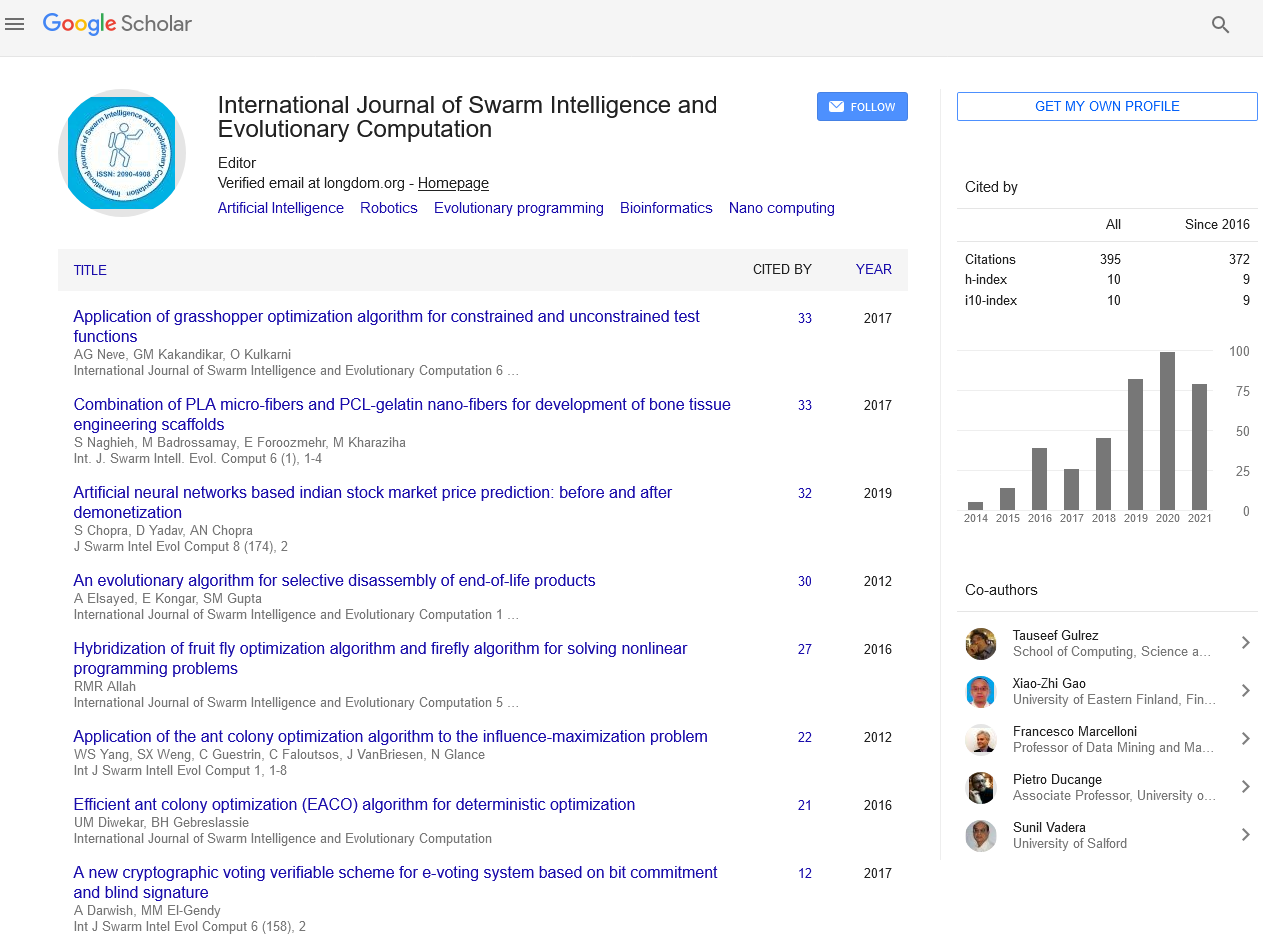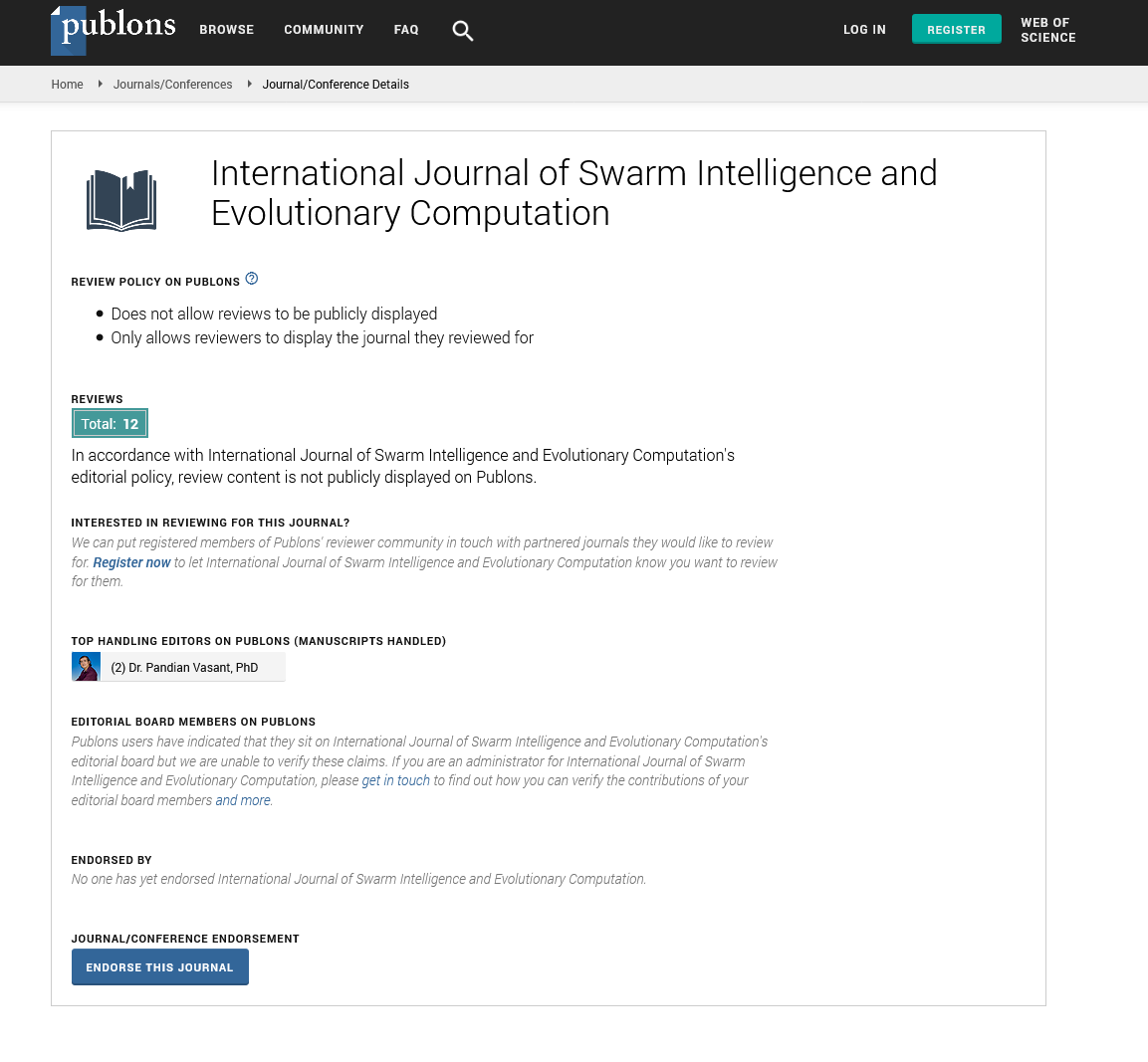Indexed In
- Genamics JournalSeek
- RefSeek
- Hamdard University
- EBSCO A-Z
- OCLC- WorldCat
- Publons
- Euro Pub
- Google Scholar
Useful Links
Share This Page
Journal Flyer

Open Access Journals
- Agri and Aquaculture
- Biochemistry
- Bioinformatics & Systems Biology
- Business & Management
- Chemistry
- Clinical Sciences
- Engineering
- Food & Nutrition
- General Science
- Genetics & Molecular Biology
- Immunology & Microbiology
- Medical Sciences
- Neuroscience & Psychology
- Nursing & Health Care
- Pharmaceutical Sciences
Perspective - (2022) Volume 11, Issue 10
Data Science and its Applications in Health Care Systems
William Henry*Received: 01-Sep-2022, Manuscript No. SIEC-22-18844; Editor assigned: 05-Sep-2022, Pre QC No. SIEC-22-18844 (PQ); Reviewed: 19-Sep-2022, QC No. SIEC-22-18844; Revised: 26-Sep-2022, Manuscript No. SIEC-22-18844 (R); Published: 03-Oct-2022, DOI: 10.35248/2090-4908.22.11.280
Description
Data science is an interdisciplinary field that employs scientific methods, processes, algorithms, and systems to extract or extrapolate knowledge and insights from noisy, structured, and unstructured data, as well as to apply data knowledge across a wide range of application domains. Data mining, machine learning, big data, computational statistics, and analytics are all related to data science. Data science is a concept that combines statistics, data analysis, informatics, and other related methods to understand and analyse real-world phenomena using data. It employs techniques and theories from a variety of disciplines, including mathematics, statistics and computer science, information science, and domain knowledge.
Data science is an interdisciplinary field that focuses on extracting knowledge from large data sets and applying that knowledge and insights to solve problems in a variety of application domains. Preparing data for analysis, formulating data science problems, analyzing data, developing data-driven solutions, and presenting findings to inform high-level decisions in a wide range of application domains are all part of the field. As such, it combines computer science, statistics, information science, mathematics, data visualization, information visualization, data integration, graphic design, complex systems, communication, and business skills.
Applications
The healthcare industry is being transformed by the use of advanced machine learning and data analytics. Data science applications in healthcare are numerous, whether in patient care, operations, or pharmaceuticals, and here are some of the top data science use cases in the healthcare sector.
Discovering drugs
The most significant contribution of data science to the pharmaceutical industry is to lay the groundwork for drug synthesis using artificial intelligence. Patients' metadata and mutation profiling are used to develop compounds that address the statistical correlation between the attributes.
Virtual assistance
Catboats and AI platforms are now being developed by data scientists to assist people in better understanding their health by inputting specific health information about themselves and receiving an accurate diagnosis. Furthermore, these platforms provide consumers with health insurance policies as well as better lifestyle advice.
Wearables
The current Internet of Things (IoT) phenomenon, which ensures maximum connectivity, is a boon to data science. When applied to the medical field, this technology can now help monitor patient health. People nowadays use physical fitness monitors and smart watches to track and manage their health. Furthermore, if given access, these wearable sensor devices can be tracked by a doctor, and in chronicle cases, the doctor can remotely provide solutions to the patient.
Predictive analytics in healthcare
A predictive analytical model uses historical data to identify patterns and make accurate predictions. The information could range from a patient's blood pressure and body temperature to their sugar level. In Data Science, predictive models correlate and associate every data point with symptoms, habits, and diseases. This allows for the detection of a disease's stage, the extent of damage, and an appropriate treatment strategy.
Reduced failure in treatments
Perhaps the most important application of data science in healthcare is the reduction of treatment errors through accurate predictions and prescriptions. Data scientists collect a large amount of data about the patient's medical history, and this data can be used to identify symptoms of illnesses and provide an accurate diagnosis. Because treatment options can now be personalized and care is more informed, mortality rates have decreased significantly.
Citation: Henry W (2022) Data Science and its Applications in Health Care Systems. Int J Swarm Evol Comput. 11:280.
Copyright: © 2022 Henry W. This is an open-access article distributed under the terms of the Creative Commons Attribution License, which permits unrestricted use, distribution, and reproduction in any medium, provided the original author and source are credited.


